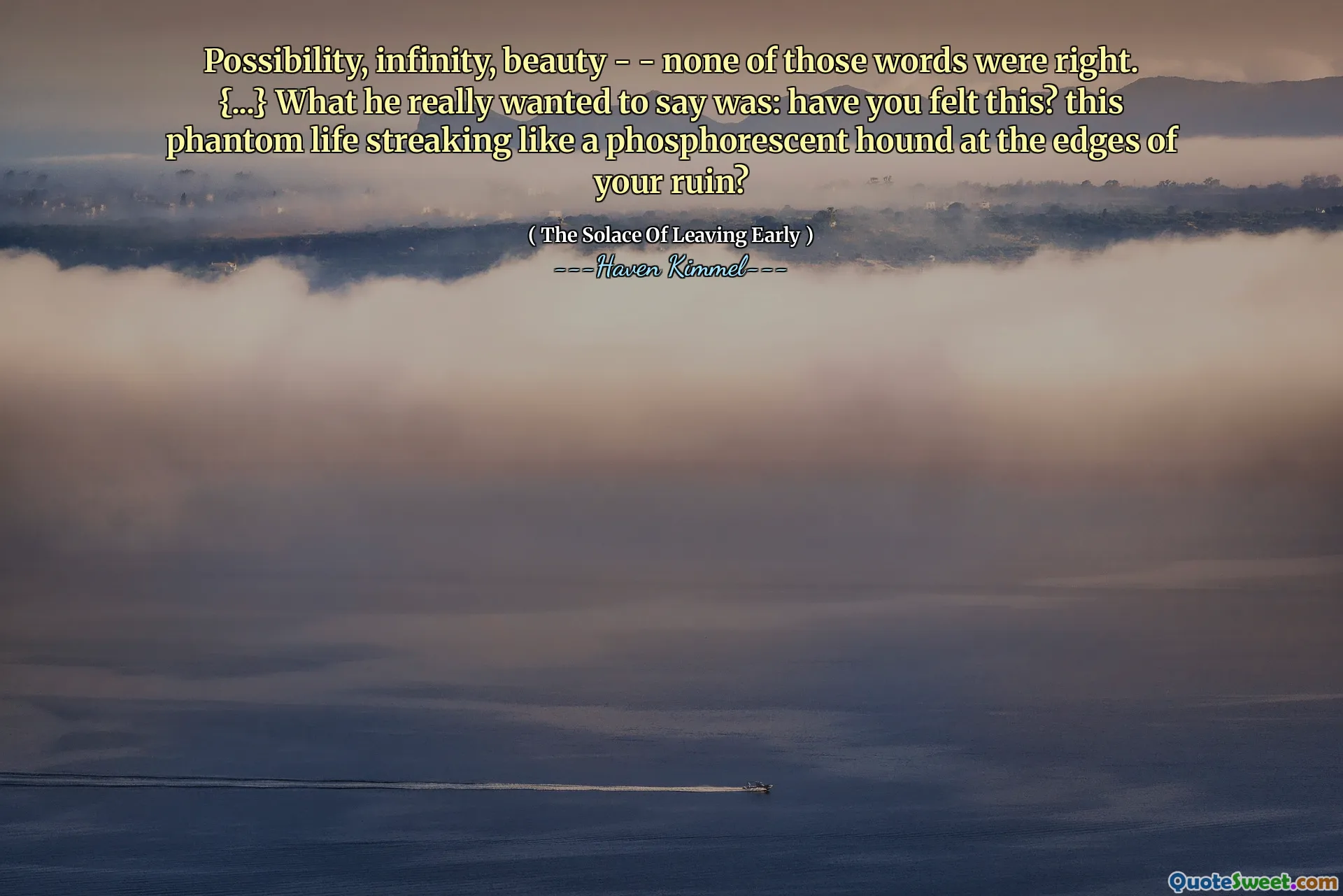
Possibility, infinity, beauty - - none of those words were right. {...} What he really wanted to say was: have you felt this? this phantom life streaking like a phosphorescent hound at the edges of your ruin?
The quoted passage evokes a profound sense of existential exploration and subtle longing. It challenges the reader to consider the limitations of language when grappling with complex, ineffable feelings. The initially listed words—possibility, infinity, beauty—serve as lofty concepts often invoked when contemplating the vastness of life and human experience. However, the narrator dismisses these terms as inadequate descriptors, suggesting that true understanding surpasses simplistic labels. Instead, the core of the message centers around an visceral, almost primal sensation: a feeling that is elusive, ghostlike, yet intensely present. Described as a 'phantom life,' this concept resonates with the idea that much of our lived experience exists on the fringes of consciousness—things we sense but cannot fully articulate. The metaphor of a 'phosphorescent hound' stalking our peripheries emphasizes a haunting, luminous presence, hinting at both allure and danger. It prompts introspection on how we perceive our mental and emotional landscapes—are we merely shadows or hosts for restless, intangible forces? This reflection underscores the human tendency to seek meaning in feelings that defy articulation, to chase after ghosts that persist at the borders of understanding. It recognizes that to live fully may involve confronting these intangible, sometimes uncomfortable truths about our inner worlds—acknowledging their presence without requiring complete delineation. Ultimately, the quote invites a meditation on the power of sensation and intuition, urging us to recognize and accept the ephemeral elements that flicker at the edges of our existence, shaping a deeper, perhaps more authentic sense of being.






